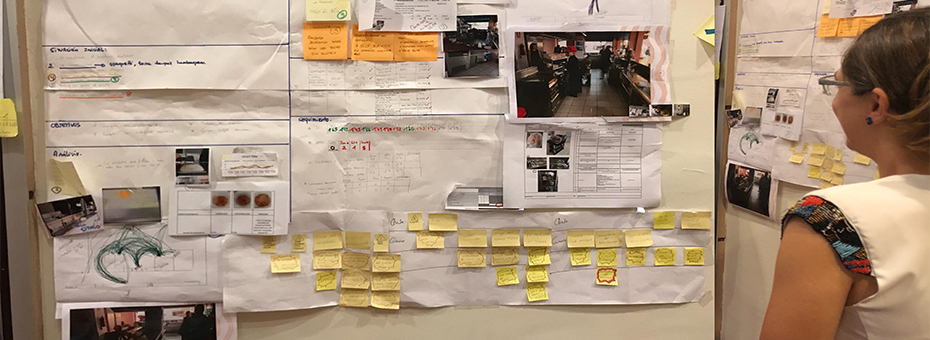More than a thousand hospitality workers, members of the union Unite Here, have gone on strike at seven Marriott hotels here in Boston, MA. It’s another reminder that these are disruptive times. Generally, they are asking for better wages and benefits. Specifically, for protections against the effects of emerging technologies such as self check-in kiosks. What’s being described as months of fruitless negotiations has left employees disgruntled enough to walk off the job.
Boston, one of the United States’ ten most expensive cities, and its surrounding suburbs are home to more than fifty colleges and universities including Harvard and MIT, at least two internationally renowned “innovation districts,” about two dozen hospitals including Massachusetts General Hospital (which locals have nicknamed “Man’s Greatest Hospital”), and several corporate headquarters including General Electric. World-class talent development and innovation are like jet fuel for the area’s hyperactive economy. This makes Boston a wonderful place to live…if you can afford it. These hospitality workers say they cannot, and are expressing their being left behind by way of a massive (and newsworthy) work stoppage.
On a recent visit to Tenerife, one of the Canary Islands off the northwestern coast of Africa, I visited properties that are owned and operated by a private company called Dreamplace Hotels and Resorts. I stayed in a 5-star resort (woe is me) and was allowed to go “behind the scenes.” This was another visit in a series of collaborative activities between the Lean Enterprise Institute located in Boston (USA) and the Lean Management Institute in Barcelona (Spain, or Catalonia).
What I witnessed was a company culture unlike any I’d seen before. In the business of providing hospitality for paid guests, the company is purposefully injecting a similar ethos into the experience it creates for employees. The ownership group, along with its management representatives, is becoming what Jim Womack has described as a “good lean employer.”
Walking around the hotels and resorts, I saw beautifully messy A3-sized papers posted on every available wall. Each A3 told a clear and simple problem-solving story through handwritten notes, sketches, charts, and post-its. An A3’s author was as likely to be a frontline worker as it was to be a manager. In many cases, the authors (plural) were members of small cross-functional teams who were problem-solving collaboratively. In this way, problem-solving and teamwork were becoming a prominent part of everyone’s job.
A memorable example is an A3 tri-authored by a housekeeper, a maintenance engineer, and a receptionist at the front desk who have figured out how to coordinate their activities so that the rooms of arriving guests will always be ready, even when they check-in early (before 3pm). I’ll never forget the smile on the housekeeper’s face as she talked about how the maintenance engineer is making her work easier now. “I’m sooo happy” she exclaimed!
Another example is a member of guest services and a housekeeper who have improved the standards for room presentation in a precise and guest-focused way. For instance, shampoo and conditioner bottles that used to be displayed outside of the shower on a nearby sink have been relocated onto a shelf within the shower. “Because that’s where our guests use them,” said the guest services worker matter of factly.
“…it sure did seem like managers focused on developing and supporting frontline workers to solve problems for guests through their work leads to remarkable results for the business, its employees, and for me, the weary traveler and easily annoyed guest”I travel a lot and stay in far too many hotels. It’s small things like oddly displayed toiletries that make business travel even more annoying than it already is. So, I genuinely appreciate the improvements these workers are making. That said, my main takeaway wasn’t these changes; rather, it was the cultural impact of asking frontline workers to get together and improve their work for their own benefit, and for their guests. Upper management described this as “pushing decision-making and problem-solving as close to the guest as possible.” This practical approach is resulting in tremendous engagement, energy, and ownership of the organization’s purpose.
Meanwhile, in Boston, Marriott’s approach seems to be quite different. Rather than engaging frontline personnel in the messy work of improving their messy work (reflected in messy A3s), self check-in kiosks are being implemented by corporate decree. But why? Does it really add value for guests? Does it improve the frontline team member’s work? Or, does it simply eliminate their job in the spirit of efficiency and cost savings? Employees have questions like these. And as the strike suggests, they are dissatisfied with management’s answers.
I’m not saying that the approach I saw in Tenerife will prevent every possible labor dispute. But, it sure did seem like managers focused on developing and supporting frontline workers to solve problems for guests through their work leads to remarkable results for the business, its employees, and for me, the weary traveler and easily annoyed guest. Would the situation at Marriott be any different if this were their approach? My hypothesis is yes.






